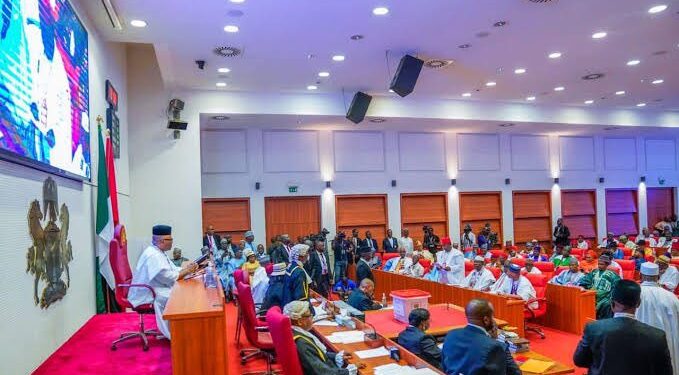From Adesuwa Tsan, Abuja
The Senate has passed for second reading a bill seeking to amend the Electoral Act 2022 to cut the cost of elections and introduce same-day voting for all elective offices in Nigeria.
The bill, titled the Electoral Act (Amendment) Bill, 2025, was sponsored by Saliu Mustapha (Kwara Central). It was first read on February 12, 2025.
Leading the debate, Mustapha stressed the urgent need for electoral reforms to make Nigeria’s elections more cost-effective and efficient, citing the rising financial burden of conducting elections.
“The cost of general elections in Nigeria has risen astronomically, from N1.5 billion in 1999 to N350 billion in 2023. This exponential increase is unsustainable and undermines the democratic process.”
The senator explained that another key amendment proposed in the bill is the introduction of same-day elections to minimise costs and boost voter turnout.
He argued that “holding elections on the same day will significantly reduce expenses associated with prolonged campaign periods and staggered elections. It will also encourage greater voter turnout and minimise logistical challenges.”
The bill also seeks to shorten the campaign period to ease financial pressures on political parties, candidates, and the government.
According to Mustapha, “a shorter campaign period will limit excessive spending and help political actors focus on governance rather than prolonged electioneering.”
Additionally, the proposed legislation aims to grant elected officeholders, including the President, Vice President, Governors, and National Assembly members—the right to serve as ad hoc delegates in their party’s conventions, a privilege currently denied under the 2022 Electoral Act.
“It is unfair and counterproductive to exclude those who hold elective positions from the internal affairs of their political parties.”
Mustapha emphasised the broader benefits of the bill, stating that it would reduce government expenditure, enhance electoral efficiency, and lower political tensions caused by staggered elections.
While encouraging his colleagues to support the bill, Mustapha cited examples from other democracies like the United States, India, and Brazil which have successfully implemented same-day elections, reducing costs and enhancing their electoral process.
“Nigeria must adopt a similar approach to save funds that can be redirected to critical infrastructure projects,” he stated.
